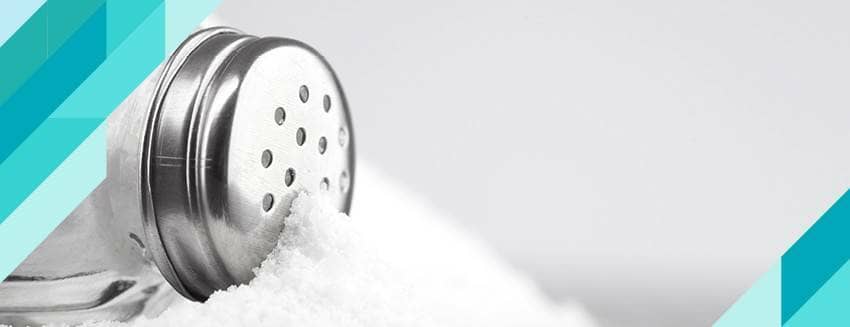
While salt is the most important determinant of blood pressure levels, experts point out that consuming more than 5 grams of salt per day causes high blood pressure, increased risk of heart disease and stroke. "High salt consumption causes children to be predisposed to the development of hypertension in their later life," said experts who warned about salt consumption, especially in children and young people.
The week of March 9-15 is known as Salt Caution Week. This week aims to limit salt consumption and raise awareness.
Üsküdar University NPISTANBUL Hospital Internal Medicine Specialist Dr. Ayhan Levent said that attention should be paid to the amount of salt consumption.
Excessive use of salt is harmful
Pointing out the importance of raising awareness of salt consumption not only in adults but also in children and young people, Dr. Ayhan Levent said:
"Salt has important roles in regulating fluid balance in the body and therefore blood pressure, maintaining acid-base balance and transmitting impulses in the musculo-nervous system, but excessive use of salt negatively affects health. The World Health Organization (WHO) recommends a total daily salt intake of less than 5 grams (1 teaspoon). The Ministry of Health has been working to reduce salt consumption since 2011. Reduced from 18 grams to 9.9 grams, the daily salt intake is still much higher than the recommended daily intake."
No more than 5 grams of salt should be consumed per day
"The most important determinant of blood pressure level is the amount of salt taken in the diet," said Dr. Ayhan Levent, "Consumption of more than 5 grams of salt per day; high blood pressure, increased risk of heart disease and stroke. Reducing daily salt consumption helps lower blood pressure and reduces the risk of cardiovascular diseases, stroke and heart attack."
May be predisposed to the development of hypertension
Noting that salt intake is usually 6 grams per day in children over the age of 5 and that this value increases with age, Dr. Ayhan Levent said, "High salt consumption causes children to be predisposed to the development of hypertension in their later life.
In addition, high salt intake suppresses the taste receptors on the tongue and this causes children to prefer foods containing more salt in the future."
Changes should be made in eating habits
Noting that the first step in preventing health problems caused by excessive salt consumption should be to change eating habits and lifestyle by creating awareness, Dr. Ayhan Levent said:
"Eating habits are usually acquired in childhood. For this reason, parents have great duties. Reducing the salt content of foods and beverages prepared at home, consuming less salt as a family, ensures that both themselves and their children have a healthy lifestyle that will continue until their advanced ages."
Do not add salt without tasting
Prof. Dr. Ayhan Levent also listed the things to be considered to consume less salt as follows:
- Do not add salt to food without tasting it and remove the salt shaker from the table.
- Reduce the salt added during the preparation or cooking of food.
- Use natural flavors such as spices, onion, garlic and pepper instead of salt.
- Check the ingredient labels of foods and processed products used in the food industry, which are usually packaged for consumption. Change your preferences to consume less salt.
- Use less salt or consume less salt when preparing home-made pickles, tomato paste, tarhana and dried foods.
- Keep in mind that most of the salt is in purchased foods; foods that are frequently consumed in daily life such as white bread, pizza, pita bread, poğaça, black olives, fatty cheese contain salt.
- Consume less ready-made sauces, ready-made soups, cooking additives, snack products, salted nuts, mineral drinks and processed food products known to contain high amounts of salt.
* The labels on packaged foods purchased in supermarkets usually do not include information on how much salt they contain, instead the labels say how much sodium they contain. 1 gram of sodium equals 2.5 grams of salt. To find out how much salt (sodium chloride) a packaged food contains from the sodium value on the label, multiply the sodium value by 2.5. For 100 grams of food, having a sodium concentration of 1 gram means that this product contains 2.5 grams of salt.
Dr. Ayhan Levent said, "Reducing salt consumption in the community is the public health practice with the most cost-effective results. Reducing salt consumption to 5 grams per day means approximately 2.5 million preventable deaths every year in the world. The Ministry of Health should conduct studies and cooperate with the food sector to spread the reduction of salt consumption to the whole society. On the one hand, salt-reducing products should be developed and on the other hand, the society should be made aware of the health hazards of excess salt."


